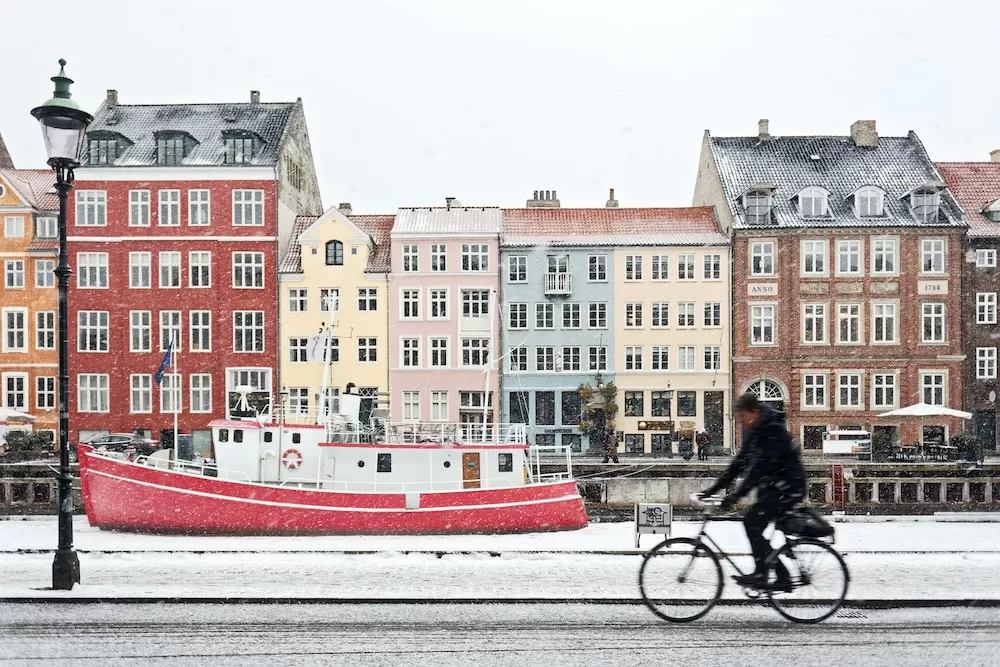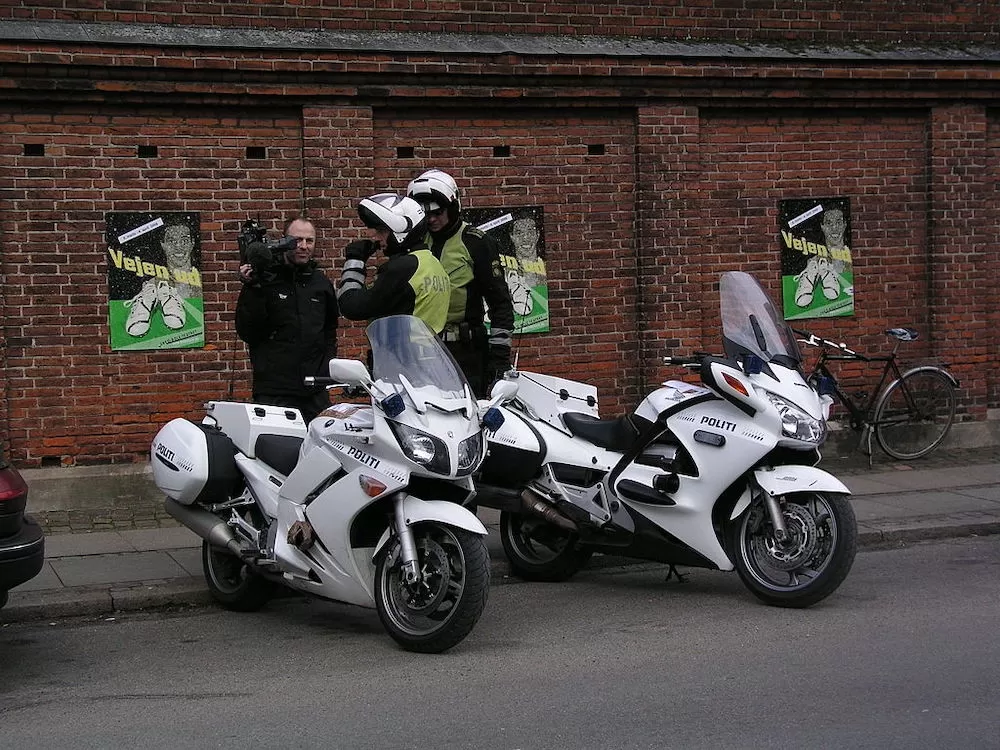Copenhagen deserves a lot more recognition than it's getting now. Sure, it's not Paris, London, or Rome but it shouldn't have to be. The Danish capital has its own charms and vibe, and at the same time, the way of life here is generally a lot more peaceful than in other European cities. Although Copenhagen is an urban metropolis just like any other capital city out there, it's one of the very few that can still offer a pleasant and peaceful lifestyle. You'd do well to consider relocating here if you get the chance. And when you decide, here's what you'll need to know.
How to Move to Copenhagen
It may seem that moving to Copenhagen—or to Denmark, in general—is tedious and complicated. While the process has many steps, they're all simple enough to do. In essence, relocating to Copenhagen requires:
- Getting a Job or enrolling in a local school.
- Finding accommodations.
- Getting a tax card.
- Applying for a CPR (Civil Registration System) Number.
- Getting an EU registration certificate.
It's also important to remember that you need to live in Denmark for at least 8 years or have worked in the country for 4 years (at a certain income level) to be eligible to become a resident here.
How Much Does it Cost to Move to Denmark?
The cost of moving to Denmark depends on your situation. However, applying for a long-term stay visa for Denmark costs around DKK 3,000.00, which is roughly around €402.37 or $480.00. You then have to add that to other requirements you need to get which can also be costly.
Overview of Copenhagen
Currently, Copenhagen has a population of 1,391,000 residents. It's no surprise that Denmark's capital has a large population because the country itself is one of the most densely populated in Europe. Not to mention one of the coldest too. Thanks to its geographical location, Denmark generally has cold climates. In fact, its hottest month, which is July, regularly sees an average temperature of 17°C (63°F) which, in other countries, is considered room temperature. Meanwhile, every February, the city's coldest month, has an average temperature of 0°C (32°F). These alone should tell you how cold it can get here!
Where is Copenhagen Located?
Denmark is located in Scandinavia in Northern Europe, next to Germany and Sweden. It's an archipelago made up of numerous islands and Copenhagen, the country's capital city, is on the rightmost island. It's on the nearest coast to Sweden.
What to Do in Copenhagen
Not a lot of people realize that there's a lot you can
do in Copenhagen, even if it's just for a day. Nyhavn alone, the 17th-century waterfront district of the city, has a lot to offer. From here, you can go on a canal cruise, watch a show at the Royal Danish Playhouse nearby, and go cafe-hopping. You can also go shopping at Strøget, Copenhagen's premier shopping street. The place is lined with luxury labels, popular high-street brands, and more. And if you want some family fun, the enchanting Tivoli Gardens are always a good time!
What to See in Copenhagen
For a city with a long history and rich heritage, Copenhagen is a treasure trove of fascinating spots. Since Denmark is under a constitutional monarchy, the Amalienborg Castle is always a favorite among locals and tourists alike. This is where the Danish royal family lives. Rosenborg Castle is just as popular. The royal summer residence is where the crown jewels are kept and displayed. You also can't talk about Copenhagen without mentioning the iconic “Little Mermaid” statue the Langelinie promenade. It's the city's most famous statue and commemorates
Hans Christian Anderson, the famous fairytale author who once lived here.
Source: Wikimedia Commons
Visa for Copenhagen
The most important document you need to move to Copenhagen is the right visa. A
Schengen Visa will let you gain entry to Denmark if you're coming from a non-EU/EEA country. Specifically, you need a long-term visa to get to stay in the country for longer than three months. The process isn't too far from applying for a Schengen Visa but it does require a lot more requirements. Incidentally, you also need a long-term visa even if you're coming from a fellow EU/EEA member state, especially if you're moving to Copenhagen.
Do I Need a Visa for Copenhagen?
As already mentioned, anyone coming from a non-EU/EEA country needs a Schengen Visa just to get to Denmark. There's also the
ETIAS Visa Waiver Program, which allows selected countries to enter the EU without a visa. They include the US, the UK, the UAE, Canada, Australia, Japan, Singapore, and more. Relocating to Copenhagen, on the other hand, requires a long-term Danish visa, regardless of where you're coming from. This will allow you to stay in the country for more than just three months.
Visa Requirements for Copenhagen, Denmark
The complete list of requirements needed to apply for a Schengen or long-term Danish visa varies from country to country. There are, however, a few general documents that are required across the board. They include:
- Your valid passport.
- Application form.
- Flight itinerary.
- Proof of objective for going to Denmark (i.e. proof of employment, school enrollment form, etc.)
- Proof of funds.
- Travel medical insurance.
Source: Wikimedia Commons
Getting Around Copenhagen
Although Copenhagen is far more peaceful than other European capitals, it's still a busy metropolis. On any given day, you'll find countless people bustling about, particularly in
the city's public transport. Copenhagen offers a handful of options for commuters to get around. There's the underground metro for faster travel time, the S-train which stays within the city’s busier areas, and buses that go on several routes, among many others.
How to Get Around Copenhagen
As already mentioned, Copenhagen has several public transport systems to help you get around. In terms of accessing these systems, you'd do well to get a City Pass. It lets you travel throughout the city for free and it's good for a minimum of 24 to 120 hours (approximately 5 days). There’s also the option of using a
transportation app too. Although Uber and Lyft don’t operate in Copenhagen, you can still use the lesser-known but still efficient Viggo instead.
Is Copenhagen a Walkable City?
Yes, it is. Copenhagen’s streets are not too wide and most areas have sidewalks and pedestrian lanes.
Source: Wikimedia Commons
Where to Live in Copenhagen
When you plan on moving to Copenhagen, one of the first things you ought to do is to choose which part of the city you'll settle down in.
Copenhagen's neighborhoods are far more diverse than you probably think. How you choose your next hometown should depend on your personal lifestyle, where you work/study, your vibe, and more. Though the available real estate and other factors play in as well, it's always better to choose a place where you'll be comfortable.
Where to Stay in Copenhagen, Denmark
Among the best places to stay in Copenhagen include Vesterbro, Østerbro, Nørrebro, Valby, Christianshavn, and the City Center. Not only are these some of the central neighborhoods of the Danish capital, but they're all unique and different too. Vesterbro, for instance, is a hipster haven where the bohemian spirit reigns supreme. Østerbro, on the other hand, is for the sporty type and is a largely family-friendly part of town. You can't go wrong with Nørrebro either, especially since it's an affordable area and has a lot of youthful energy.
Where is The Best Place to Live in Copenhagen
The previously mentioned places that are the best neighborhoods for anyone to stay in Copenhagen, whether you're a tourist or a new resident, are naturally the best areas to live in the city too. They're all largely safe, some are residential districts, and they're all surrounded by various hotspots and facilities. What more could you ask for?
Where to Live in Copenhagen as an Expat
Any of the aforementioned neighborhoods are also where many expats choose to settle down in Copenhagen. Another main option is Amager, located south of inner Copenhagen. The municipality offers lots of affordable housing.
Where to Live in Copenhagen with Family
If you're relocating to the Danish capital with your spouse and kids, you'd do well to pick the more peaceful neighborhoods of Frederiksberg and Østerbro. Frederiksberg, for example, is a peaceful residential area full of parks. Østerbro, on the other hand, is just as family-oriented and is famous for its sporty atmosphere. It's here where you'll find Parken Stadium and an array of other sports arenas and fields.
Source: Wikimedia Commons
Living Costs in Copenhagen
Once you've chosen your new neighborhood there's still the matter of real estate. And you know what that means, right? Living costs! As with any other city, you'll have to spend a lot of money to live and maintain your lifestyle here. Generally speaking, the
living costs in Copenhagen can get very high. The standard of living in the Danish capital is high, so it only makes sense that the living costs match it.
How Much Does it Cost to Live in Copenhagen?
On average, a single adult spends around DKK 30,474.30 (€4,086.60) per month without rent. A family of four, on the other hand, spends about DKK 8,466.20 (€1,135.30) per month. These show just how expensive it is to live in Copenhagen.
Housing Costs in Copenhagen
Copenhagen's housing costs are quite high. They're practically comparable to those in Paris, London, and Rome. For instance, the common rental costs for a
luxury apartment in Copenhagen ranges from a minimum of DKK 6,500.00 (€871.66) to a maximum of DKK 25,000.00 (€3,352.53) per month. At the same time, buying your own property in Copenhagen will cost you around DKK 33,000.00 (€4,425.35) to DKK 69,000.00 (€9,253.00) per square meter.
Source: Wikimedia Commons
Copenhagen Employment
As far as employment goes, you're in luck!
Denmark's job market is one of the most stable in the world, backed by a good economy and favorable working conditions. The fact that this country is one of the more well-off in the world speaks volumes as to how one can flourish and live happily in Copenhagen.
Copenhagen Employment Rate
The country currently enjoys an employment rate of 68.2% and an unemployment rate of 5.00%. Not bad, right?
How to Get a Job in Denmark
Denmark, like the rest of the world, has advanced in terms of job hunting. Thanks to the internet, it's a lot easier to
find a job in Denmark now. Job-seeking websites like Indeed, Job Index, HR-Manager, and more are popular here. You'll find countless new posts from various companies. There are also social media platforms like Facebook and LinkedIn. They've become common platforms to find new work in Denmark and around the world.
Source: Wikimedia Commons
Education in Copenhagen
Now, as far as education is concerned, there's nothing to worry about. Copenhagen might not be the academic capital of the world but it certainly does not lack high-quality education. In fact, the Danish educational system consistently ranks as one of the best in the world. It helps that their approach focuses on individual progress instead of class ranking and formal tests. They've set up a more laid-back atmosphere for children to grow and learn at their own pace.
Is Education Free in Denmark?
It depends on where your kid is going to school. If they're going to a public school, schooling is free up until secondary education. However, if you choose to enroll them in an international or private school, you're bound to pay tuition fees per year.
Schools in Copenhagen
There are plenty of well-respected
fine schools in Copenhagen, even international institutions that will help your expat kids continue their studies. The likes of Copenhagen International School and Waldorf International School Copenhagen have all gained recognition as prominent schools in the Danish capital.
Source: Wikimedia Commons
Healthcare in Copenhagen
The moment you relocate to Copenhagen and become a legal resident, you can finally access
Denmark's healthcare system. Thanks to the fact that it operates on a universal system, all legal residents in the country get the right to register under public coverage. This, in turn, will give you many benefits, ranging from getting a general practitioner to getting treated at any of Copenhagen's finest hospitals. There's also the option of getting private medical insurance. You can add this to your public coverage for more and better access to the country's healthcare institutions.
Hospitals in Copenhagen
Copenhagen consistently ranks high among the healthiest cities in the world. It helps that it's not such an urban city that's polluted and crime-infested, but there's more to it than that.
Copenhagen's best hospitals also play a part in this too. Places like Rigshospitalet, Bispebjerg Hospital, Amager Hospital, and Bornholms Hospital have all contributed to helping increase Denmark's life expectancy to 81.55 years, one of the highest in the world. If you ever have a health problem while you're in the Danish capital, you ought to remember these places!
Source: Wikimedia Commons
Safety in Copenhagen
Is Copenhagen the safest place in the world? No, but it's close!
Copenhagen's crime rates indicate that there's very little to worry about here. This isn't to say that the Danish capital is crime-free, but rather, compared to other major cities around the world, the Danish capital fares well. Currently, its general crime rate is 25.54%, one of the lowest in the world.
Is Copenhagen Safe?
Yes, you can confidently say that Copenhagen is a generally safe place. Not only does it have a low general crime rate, but its rate of increasing crimes is also a moderate 54.16%, which still isn't bad!
How Safe is Copenhagen?
To be more specific about just how safe Copenhagen truly is, you can look at its safety rate. During the day, the city's safety rate enjoys a high 84.37%. Not only is this high but it's considered “very high” on the scale, especially compared to other European capitals.
Is Copenhagen Safe at Night?
It's to be expected that the safety rate drops come nightfall, but even that is still pretty high in Copenhagen. The Danis capital has a 68.18% high safety rate at night.
Source: Wikimedia Commons
Taxes in Copenhagen
Of course, when you become a legal resident of Copenhagen, you'll have to deal with
Denmark's tax system too. Let's focus on your income tax, for instance, since this is what will directly affect you the most. Just like in many other countries, your income tax rates depend on how much you earn in a year. With that said, the Danish system has put a threshold to determine whether you're part of the 'top' bracket or 'bottom' bracket. Those who earn less than DKK 568,900.00 a year belong to the latter and have a fixed income tax rate of 12.09%. Those who earn more than the aforementioned amount belong to the latter and have a fixed income tax rate of 15%.
Are Taxes High in Denmark?
Yes, they are. Denmark ranks among the top 20 countries that have the highest taxes. But you know what? The Danes don't mind it. The high standard of living in Copenhagen and the rest of the country proves that their taxes don't go to waste.
Source: Wikimedia Commons
Relocation Tips
Here are a few last-minute relocation tips worth following as move to Copenhagen.
- See if you're eligible for Denmark's Pay Limit Scheme for expats.
- Open a
local Danish bank account. Even better if you do it before you get to Denmark.
- Join a
local Danish mobile network and get a SIM card for your phone.
- Fix your healthcare coverage as soon as you get to Denmark.
- Brush up on your Danish by enrolling in a
language school in Copenhagen.
- Learn about
Danish social customs to avoid offending locals.
- Follow proper Danish business etiquette at work.
- Memorize the route you'll be taking every day.
Source: Wikimedia Commons
Despite how complicated and costly the process can get, moving to Copenhagen still has a lot of rewards. It's a huge change and there's a lot to do but know that a good life awaits you in the beautiful Danish capital











